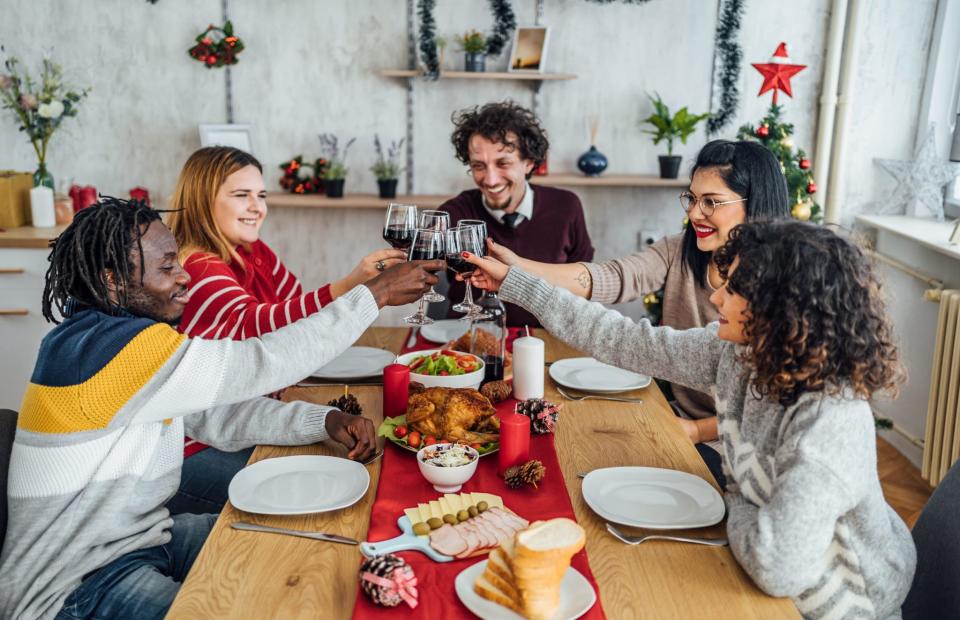More than 1 in 3 Gen Zers are choosing friends over family this holiday season to avoid drama. If you want them to stick around, here are the key topics to avoid

Not to burst the festive bubble, but the holidays are not always the season of perpetual hope. Many people opt not to see family for the holidays, preferring to spend their PTO with friends, take solo travel, or—believe it or not—be home alone to avoid contentious relatives.
“The biggest lesson learned from the pandemic is you don’t need to settle, and if people aren’t giving you the energy that you deserve, and even if they’re family, you don’t need to participate,” Sarah, a millennial living in Seattle, previously told Fortune about not going home for the holidays. She is being referred to by her first name for privacy.
Sarah experienced uncomfortable conversations with her family during the pandemic and the election cycles, describing holiday events as “emotionally triggering.” She’s far from alone.
One in five Americans plan to forgo family this holiday season to avoid drama, according to a new survey of over 1,000 Americans. Conducted by Preply, an online tutoring company, the survey found 27% of respondents prefer to go on vacation and 22% prefer to be alone rather than be with family.
Specifically, younger generations are gravitating toward friends over family for the holidays. Over one-third of Gen Zers plan to see friends instead of family this season to avoid drama, and they would spend an average of $410 to get out of a family holiday event.
“I have more peace being by myself when I need to be,” Sarah said.
How to avoid family drama during your holiday roast
When generations, personality types, and sibling dynamics coalesce, uncomfortable conversations are to be expected. Nearly half (46%) of respondents have experienced a heated argument during the holidays, pushing many to avoid the chaos altogether. A majority, 57%, of Gen Zers say they have experienced a heated family argument during a holiday gathering, and 17% have lost touch with a relative because of it. As for millennials, 15% have lost touch with a relative due to an argument during a holiday gathering.
Like Sarah, many will choose their own holiday adventure when their relationships back home aren't serving them. So if you want young adults to take a seat at the table avoid common hot-button issues.
The topics people are least excited to talk about this season include the 2024 election, COVID, family gossip, conspiracy theories, personal finances, and relationships, the survey found. Nearly all respondents would rather put politics aside, and about 25% say a family roast should be about eating only (no sides of extended family gossip, please).
The most offensive questions include: “Have you lost/gained weight?” “Why are you still single?” “When are you getting a job?” and “When are you having kids?”
Instead, people prefer chatting about shared memories, travel plans, shows, movies, general gossip, pets, recipes, music, and hobbies.
Moreover, the pressure to have a picture-perfect family get-together isn’t realistic, especially as many people may be going through difficult times in their work or personal lives. The holidays are a tricky time, especially for those grieving or experiencing a mental or physical health condition. Empathy is key.
“We, as a society, need to recognize that some people are not feeling joy,” Frank Ghinassi, the CEO and president of Rutgers University Behavioral Health Care and senior vice president of the Behavioral Health and Addiction Service Line at RWJBarnabas Health, previously told Fortune. “[The holidays] highlight the chasm between what the world is expecting and what some people can give.”
This story was originally featured on Fortune.com

 Yahoo Finance
Yahoo Finance 